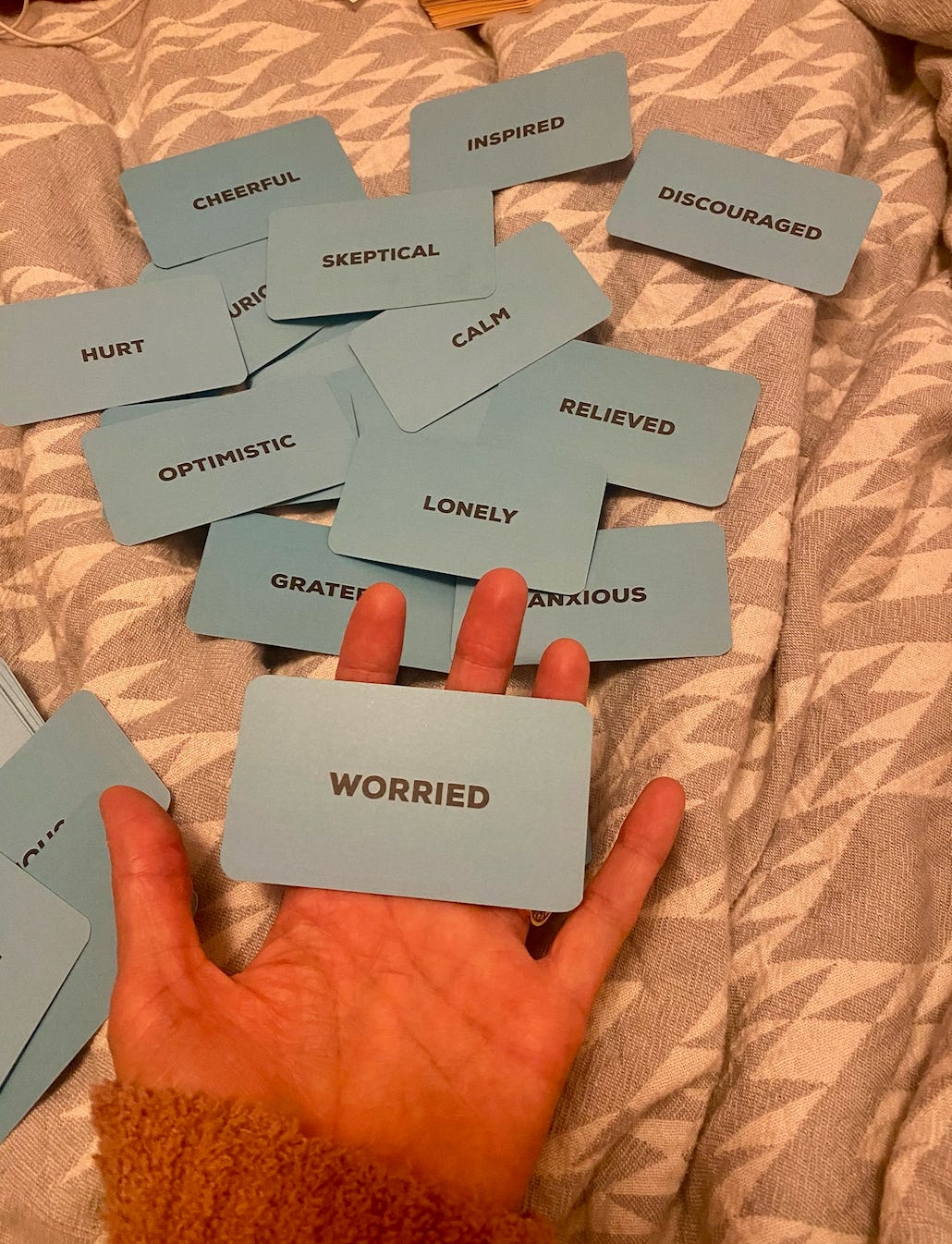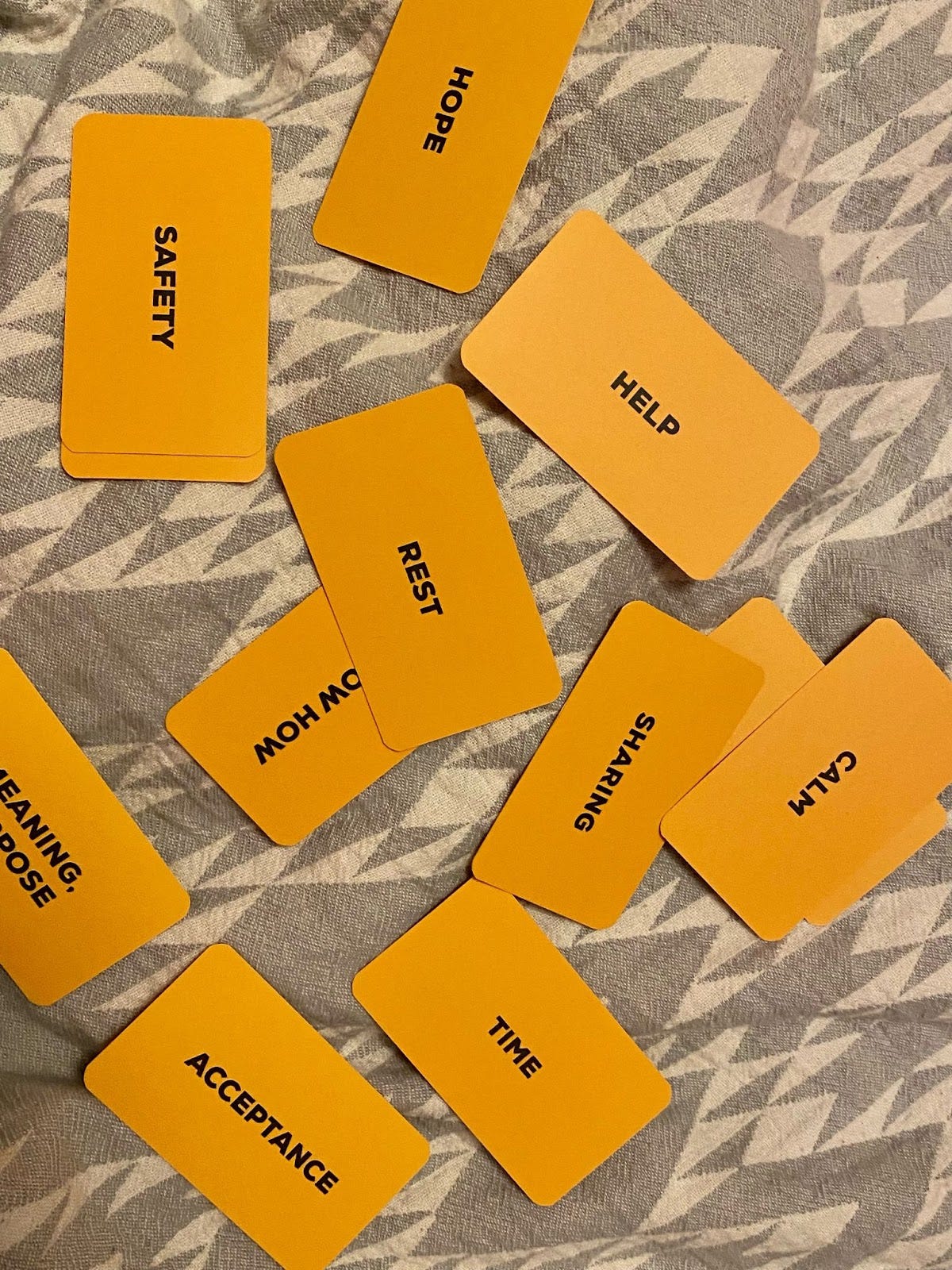Thanks to the variant who will not be named, the world has dramatically changed in the span of just a few days. The recent surge in Covid-19 cases have forced many throughout the world to cancel family gatherings, postpone seeing loved ones and the NHL has even suspended hockey games, which I believe in some parts of Canada, is a criminal offense. We went from expecting a somewhat normal holiday to March 2020ish dread.
If you’re holding by a thread, I’m right there with you. Fortunately, I was able to get some sharp advice from my sister Emilie Plank, a professional bonafide emotional gangster. Emilie is an elementary school educator who teaches social-emotional learning skills (SEL) and who also happens to be publishing a forthcoming children’s book about it. She told me that one of the most important parts of coping with difficult emotions is being able to name them. The more granular, the better. Being specific with what difficult emotion we are feeling helps them have less control over us and can even make them dissipate more quickly.
But I found myself speechless when attempting to describe my current state of being to her. I’d felt incensed or disgruntled about the pandemic before but this felt different, more complicated. For some reason I felt foolish this time, like I had expected too much from a person who I should have known was going to leave me on read.
Because I couldn’t find an English word to describe the singular feeling, inspired by Meredith Alberta Palmer's tweet describing a German expression for wanting guests to leave your house, I went digging to see if the German language could offer me a word for what I was feeling too. That’s when I came across the German term weltschmerz, coined by German author Jean Paul in his 1827 when he combined the word "world" (welt) and "pain" (schmerz) to connote a feeling of disappointment when the world has failed to meet your expectations. It’s distinct from boredom or the French expression, ennui, because it’s not pessimism, but rather a hope or yearning for things to be better, a “perceived mismatch between the ideal image of how the world should be with how it really is.” When you feel melancholy for a state of the world that doesn’t exist, you’re experiencing weltschmerz.
Once I named the feeling, my sister whipped out a neat card game she uses to help her students sort out difficult emotions. The first stack has a list of feelings (cheerful, excited, scared, sad, overwhelmed) and the other has a stack of needs (rest, autonomy, reassurance, safety, connection).
I pulled out the card labeled “hope” and she said that one way she helps children maintain a positive outlook on their future is to remind them of challenges they’ve overcome in the past. If a child is struggling with multiplication, reminding them of how hard subtraction was at first, and how they overcame it is an effective way to do it. In the case of this new variant, remembering that we’ve been through waves before, with fewer vaccinations or none at all is a good way to keep faith. It doesn’t make this variant go away, but it could help us cope with it a little bit better. “Even though this wave is hard, we are getting better at dealing with them than we used to,’’ my sister said. She said that pointing to struggles we’ve had and how we’ve overcome them helps us develop a “growth mindset” which enhances brain development, reduces depression and anxiety and increases motivation. So connecting with how strong we are for making it this far in the pandemic could help make us more resilient in the face of it.
But my sister cautioned against confusing a growth mindset with toxic positivity, responding to negative emotions with invalidating superficial encouragement. Telling someone who is going through a rough time that this will make them stronger rarely ever helps. It’s important to point to past obstacles, not the ones being shelled out right now. So it’s less what doesn’t kill you makes you stronger and more what didn’t kill you made you stronger. The distinction is paramount.
And besides, though weltschmerz describes a painful feeling, it also catalogs our inherent optimism. It’s not a resolved sigh, it’s a romantic request, an indefatigable suspicion that we deserve more. If we didn’t have high hopes for our fellow citizens and for the world, we wouldn’t be unsatisfied in the first place. I’ll take weltschmerz over apathy or resentment, any day. I’d rather be disappointed than to have never loved at all.
Obsessed with my sister? Join the club! To stay on top of all the gorgeous art and healing she puts out into the world you can follow her here.








We should all probably play this game every morning instead of pulling tarot cards.
Where can we purchase the game? Google Lens couldn't identify it.